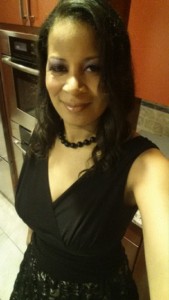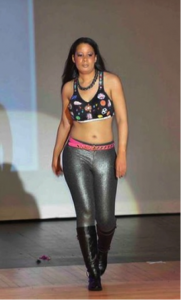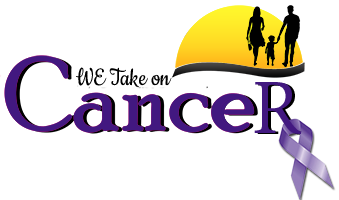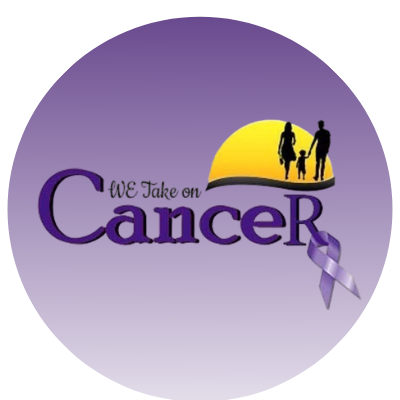 Recent news from the American Cancer Society (ACS), stating that women should start getting mammograms at age 45 instead of 40 has resulted in some confusion and uncertainty about clinical breast exams and mammograms. Maiya Hayes, who doesn’t have any family history of breast cancer was diagnosed in 2008 with stage 3 breast cancer at age 30. Hayes is living proof that ACS truly missed the mark with their “New Guidelines.”
Recent news from the American Cancer Society (ACS), stating that women should start getting mammograms at age 45 instead of 40 has resulted in some confusion and uncertainty about clinical breast exams and mammograms. Maiya Hayes, who doesn’t have any family history of breast cancer was diagnosed in 2008 with stage 3 breast cancer at age 30. Hayes is living proof that ACS truly missed the mark with their “New Guidelines.”
How was the cancer initially detected? (i.e. through a BSE, a CBE or an annual mammogram)
I discovered the malignant tumor in my right breast while doing a self-exam in November 2008. I’ve been doing self-exams for years because I had a benign breast tumor in that same breast when I was a teenager.
How much did you know about breast cancer (cancer period) before your diagnosis?
I knew very little about breast cancer and cancer period. I knew that breast cancer patients typically had a mastectomy and lost their hair and felt sick during chemo treatments. But that’s pretty much all I knew. I had no idea of how life-altering my cancer diagnosis would be.
How did you feel when you first received the news?
Honestly, I didn’t really understand how serious my situation was. So I didn’t cry or have an intense emotional reaction. I knew cancer had the potential to kill me, but because I was only 30, I didn’t think that would happen. I was naive, to realize how close to death I had come.
I knew I would need to have surgery, endure chemo and radiation treatments, and take some time off from work. But I didn’t realize I would end up being on medical leave for almost seven months.
Did you face any challenges during your treatment process? If so, how did you overcome them?
At first, my HMO insurance wouldn’t cover the anti-nausea meds that kept me from getting ill during my chemo treatments. The HMO wanted me to use a cheaper drug that didn’t help me at all. So for the first two months of my chemo treatments, my mom had to get my prescriptions filled via a mail-order pharmacy in Canada. Because Canada sells the drugs at a much cheaper rate than American pharmacies. And eventually after my mom wrote a letter to the HMO company, they finally agreed to pay for my anti-nausea meds.
Also, my paid medical leave expired at my job just as I was about to begin my radiation treatments. Since I needed to have an income to pay my bills, I returned to work full-time while undergoing my radiation treatments for eight weeks.
How has breast cancer changed your life?
My life is completely different in all aspects…
Emotional/spiritual changes
- I’ve always prided myself on being independent and not relying on other people for help. But getting cancer forced me to accept that everyone needs support, including me. And it made me realize that I wasn’t a weak person for asking for help.
- Anytime I have an ache or pain, or I feel more tired than usual, I worry that I’m sick again.
- I think about death and dying way more than someone my age should.
- I have a better relationship with God, and my spirit is stronger.
Physical changes
- I have to take Tamoxifen every day for 10 years to prevent the cancer from coming back. And because of those meds, the chemo and radiation, I have a lot of the symptoms of menopause – including hot flashes and issues with my short-term memory and remembering words.
- I have surgical scars from my chemo port, lumpectomy and lymph-node dissection. I have no feeling in my right armpit because of the lymph-node surgery. (So shaving is always an adventure. LOL)
- I always have to be very careful with my right arm because I’m at risk for lymphodema. So I can’t have any blood pressure tests or blood draws on my right arm.
- I’m usually cold, so cardigans and blankets have become my best friends.
- The texture of my hair completely changed when it grew back. So, now it’s super curly and very easy to wear naturally. My hair basically showed me that even in bad situations, something always positive happens.
Lifestyle changes
- I have to get mammograms, breast MRIs, pelvic ultrasounds and blood work every year to make sure I’m still cancer-free. I also have to see my oncologist every six months for check-ups.
- I notice every billboard, TV or radio commercial, or random sign or T-shirt that has the word “cancer.”
- My wardrobe has a lot more pink than it used to.
- I’m a member of Gilda’s Club Metro Detroit, an organization that helps cancer survivors with support groups, social gatherings and other uplifting events. Through Gilda’s, I’ve connected with other young survivors and made a whole new set of friends. A lot of the other young survivors are still battling cancer, so their experiences help me keep my self-pity or sad moments in check. And the past few years, several of my Gilda’s friends have died, so I’ve experienced lots of survivor’s guilt and sadness. But I hope I’m honoring their memories by not taking my remission for granted and making the most out of my life as I can.
What would you tell your younger self about cancer?
I would tell her that anyone can get cancer at any time. I would also tell her that cancer affects your mind and emotions just as much as it affects your body. So even when you go into remission, you’re never the same person you were before your diagnosis.
What message would you like to provide women/men in the community?
I would tell people in the community that no one is immune from getting cancer. Despite all the articles that say you can prevent it by eating healthier or exercising or”doing this” or “doing that,” there’s no absolute way to avoid getting cancer. It’s a complicated disease caused by many factors that are out of our control — like genetics and the environment. And statistics are meaningless because there’s a lot that the medical community doesn’t know about the disease. So it’s important to get your annual checkups and be aware of any changes in your health. Because all you can do is be vigilant.
The American Cancer Society just released an article/statement recommending the age for people to get a mammogram at the age of 45, if no family hx of breast cancer. What’s your take on this?
The new guidelines made me furious. I took it as a personal attack against me and the young friends I’ve lost to breast cancer. My friends and I are proof that people under age 45 who have no risk factors for breast cancer get it. I worry these guidelines will convince health insurance companies to stop covering yearly mammograms. And that would force many women to choose between paying $300 for a test that may or may not detect cancer, or saving that money to cover other life expenses.
If my ob-gyn hadn’t performed those exams on me, then I wouldn’t have learned how to do self-exams. And if I hadn’t done a self-exam back in November 2008, then I would’ve had terminal breast cancer by the time it was detected.

This year, Maiya participated as an art-bra model in Bras For A Cause, an annual fundraising event for Gilda’s Club Metro Detroit. The event involves breast cancer survivors modeling art bras, and it raised more than $100,000 for Gilda’s. She also served on the committee that helped organize the event.



1 comment
Great blog! Age really ain’t nothing but a number!